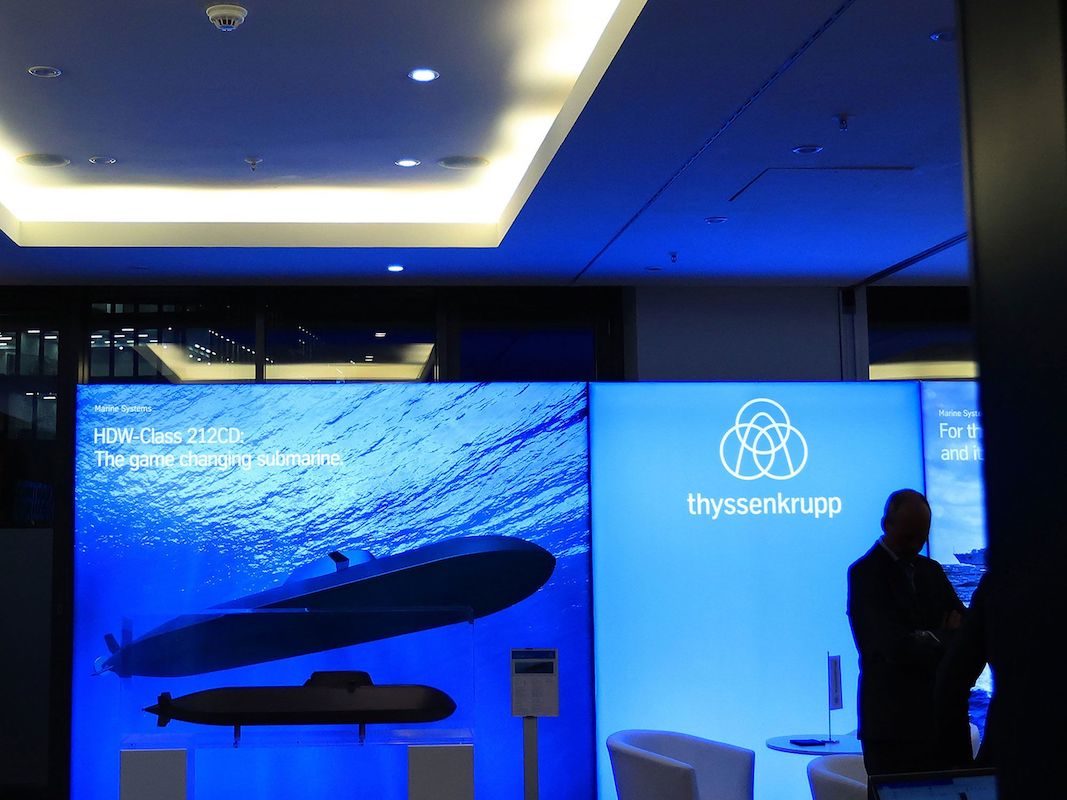
Visit Our Sponsors |
|
|
|
|
|
|
|
|
|
|
|
|
|
|
|
|
|
|
|
|
|
|
|
|
|
|
|
|
|
|
|
|
|
|
|
|
|
|

Germany and India are closing in on a deal to build diesel submarines in India, as Russia’s prolonged war in Ukraine pushes New Delhi to expand its sources of military hardware beyond top supplier Moscow.
Thyssenkrupp AG’s marine arm and India’s Mazagon Dock Shipbuilders Limited are likely to jointly bid for a project worth an estimated $5.2 billion to build six submarines for the Indian navy, according to people with knowledge of the matter, who asked not to be identified as the details are confidential.
A preliminary agreement, or memorandum of understanding, will be signed in the presence of Boris Pistorius, the defense minister in Chancellor Olaf Scholz’s government in Berlin, who arrived in New Delhi June 6 for a two-day visit, German and Indian officials said.
Pistorius told public broadcaster ARD that the submarine deal will be on the agenda when he visits Mumbai on June 7 and that his role is to “support and assist” the negotiations between German executives traveling with him and their Indian counterparts.
Read more: IPEF Talks Lead to Proposed 14-Country Supply Chain Agreement
“This would be a big and important contract not only for German industry but also for India and the Indian-German strategic partnership,” Pistorius said. In a later statement to reporters June 6, he cautioned that “there are of course also other competitors” and said that “the French are clearly also in the game.”
France’s Naval Group SA, in which the government in Paris is the main shareholder, competes with Thyssenkrupp Marine Systems in manufacturing submarines.
India’s Ministry of Defense and Mazagon Dock Shipbuilders didn’t respond to requests for comment. A German Defense Ministry spokesperson and a Thyssenkrupp Marine Systems representative declined to comment.
The Kiel-based defense contractor had shown no interest in jointly manufacturing subs in India when the tender was announced in 2021. With the war in Ukraine now in its second year and China moving in lockstep with Russia on the war, the West, and in particular Germany, are placing their bets on India becoming a bulwark against Beijing’s growing diplomatic and military assertiveness.
India has identified Mazagon Dock Shipbuilders and Larsen & Toubro to tie up with foreign defense majors to build the diesel attack submarines. A key target for a partnership had been Thyssenkrupp Marine Systems, which is one of two submarine manufacturers globally to have air-independent propulsion — a technology that helps conventional submarines stay underwater for longer.
Thyssenkrupp-made submarines were used in the past by the Indian navy, making them a far more compelling choice compared to South Korea’s Daewoo Shipbuilding & Marine Engineering Co. and Spain’s state-owned Navantia Group.
Read more: End-to-end Supply Chain Visibility is a Problem for Almost Half the APAC Region
Scholz wants German and European defense companies to step up their efforts to supply New Delhi with modern military gear as a way to help Prime Minister Narendra Modi’s government wean off its dependence on Russia in the defense sector.
New Delhi has used a lingering border dispute with China to carry on buying weapons from Moscow – its biggest supplier of military hardware though deliveries have stalled as Russia and India struggle to find a payment mechanism that doesn’t violate U.S. sanctions. India has also emerged as one of the swing states buying large quantities of discounted crude from Moscow while continuing to engage the U.S. and its allies.
Submarines are a key need for New Delhi due to its aging fleet. To effectively patrol the Indian Ocean, the Indian Navy needs a minimum of 24 conventional submarines but currently has only 16. Of this fleet, aside from six recently built vessels, the rest are over 30 years old and likely to be decommissioned in years to come.
India, which is part of the so-called Quad grouping that includes Japan, the U.S. and Australia, has been pushing for these countries and European allies to share technology to build submarines. However, there’s been a general reluctance to pass on technology given India’s proximity to Russia and Modi’s “Make in India” policy to boost local manufacturing and create jobs.
RELATED CONTENT
RELATED VIDEOS
Timely, incisive articles delivered directly to your inbox.

